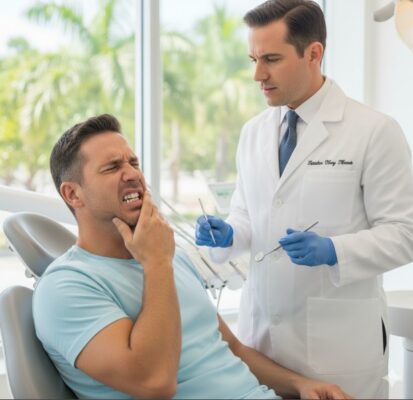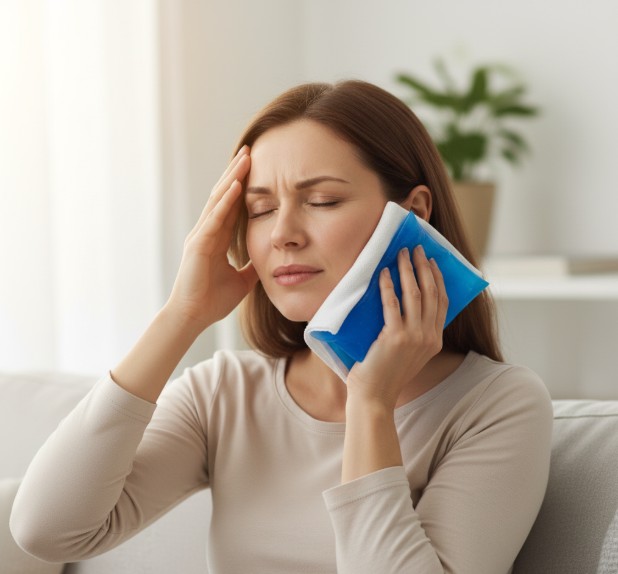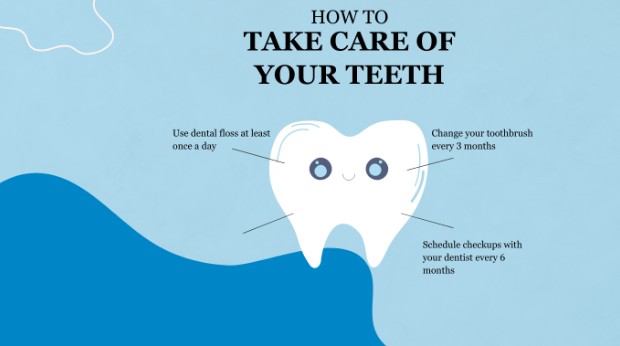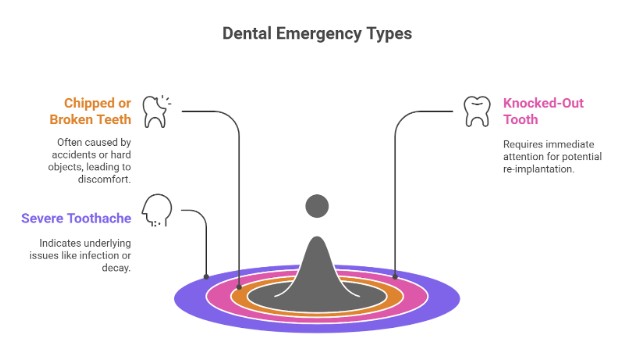
Originally published: July 2024 | Updated: October 2025
Reviewed by Dr. Michael Berglass
Emergency Dental Care: What to Do When Accidents Happen

Dental accidents can be painful and overwhelming, but taking the right steps can help protect your teeth and overall health.
From chipped teeth to severe toothaches, acting quickly often makes the difference between saving and losing a tooth.
Knowing the proper steps can make a significant difference, whether it’s a chipped tooth, severe gum pain, or an utterly knocked-out tooth.
Timely action can alleviate pain and save your teeth in many cases, ensuring the best possible outcome for your dental health.
A gentle warm saltwater rinse helps clean the area, soothe tissues, and dislodge debris after a dental injury. Swish for 30 seconds and repeat as needed—don’t use hot water on sensitive teeth.
How: Add ½ teaspoon of salt to 8 oz of warm water, swish, and spit. Avoid aggressive rinsing if you’re bleeding.
This helps to clean the affected area and reduce inflammation. Saltwater can also help to dislodge any food particles stuck in the gaps between teeth.
Ensure the water is warm but not hot to avoid further irritation.
Accidents don’t wait. Boynton Implant and Cosmetic Dentistry provides immediate emergency care in Boynton Beach to stop pain and protect your teeth. Don’t delay—contact us today to schedule urgent treatment.
If you’re ready to get started, call us now!

A cold compress helps limit swelling and numb pain after dental trauma. Apply to the cheek in 15–20 minute intervals, with breaks between applications.
How: Wrap ice/cold pack in cloth; never place ice directly on skin or gums.
Hold it there for about 15-20 minutes. Repeat as necessary to maintain the cooling effect.
If a tooth is knocked loose or dislodged, apply a cold compress while you contact an emergency dentist.
This simple step can make a significant difference in managing the immediate discomfort caused by dental accidents.

Diluted clove oil can offer brief pain relief for sore gums, but it should not be applied directly on the tooth or open wound. This is a temporary measure until you see a dentist.
How: Mix 3–5 drops of clove oil with one teaspoon of carrier oil, and dab it on the gum with a cotton swab for a few minutes. Stop if irritation occurs.
Hold the cotton ball in place for several minutes to increase absorption. Clove oil is a handy solution for temporary relief until professional dental care can be provided.
Ibuprofen or acetaminophen can reduce pain (and ibuprofen helps with inflammation). Avoid placing aspirin on the gums—it may burn tissues.
How: Follow the label dosing instructions; apply a cold compress. Seek urgent care if pain persists or worsens.
Some people may also find relief with natural remedies, such as clove oil. Applying a drop to a cotton pad and placing it on the tooth can help reduce pain. Clove oil is known for its antiseptic properties.
A short-term, diluted hydrogen peroxide rinse can reduce bacteria when infection is suspected. Do not swallow and avoid use on open wounds; saltwater is a safer alternative for frequent use.
How: Mix 1 part 3% peroxide with two parts water, gently swish for 30–60 seconds, and spit. Use sparingly.
Patients should use a 3-percent concentration mixed with two parts water. This can reduce bacteria and relieve pain.
Swish the solution in the mouth, but do not swallow. Spit it out after a minute. Repeat as needed.
OTC temporary filling material can protect an exposed cavity or lost filling until a dentist repairs it. It’s a placeholder, not a final fix.
How: Rinse the tooth, dry gently, and place the material as instructed in the kit. Avoid chewing on that side and schedule an urgent care appointment.
Using a temporary filling kit, apply the material directly to the cavity.
Press it gently to ensure a proper fit, and avoid chewing on that side to allow it to set properly. Always consult a dentist for follow-up care.
Severe pain, swelling, or a knocked-out tooth? Boynton Implant and Cosmetic Dentistry is here for same-day dental emergencies. Preserve your smile—contact us now to schedule your visit.
If you’re ready to get started, call us now!
A home kit buys time and comfort: gauze, cold pack, mirror, floss, tweezers, temporary filling, pain reliever, and your dentist’s emergency number. It’s not a substitute for professional treatment.
Include gauze for bleeding control, pain relievers for discomfort, and a small mirror for visual inspection. Tweezers and dental floss help remove debris.
Having these tools at home can prevent further damage and reduce pain. It’s important to be prepared for any dental emergency.

A mild baking-soda rinse can neutralize acids and calm irritated tissues. It won’t treat infections, but may ease discomfort while you arrange urgent care.
Mix one teaspoon of baking soda with a cup of warm water to make the rinse. Swish the solution in your mouth for about 30 seconds, then spit it out. This can help clean the mouth and ease discomfort.
Call your dentist right away for severe pain, swelling, bleeding, or a knocked-out/loosened tooth. Same-day guidance can prevent permanent damage and save teeth.
Boynton Implant and Cosmetic Dentistry offers prompt emergency appointments. If you can’t reach us and symptoms are severe, visit the ER.
Even if the dental office is closed, try to provide as much detail as possible about your condition and ask for guidance. Immediate contact can prevent further damage and potentially save your tooth.
Visit your dentist or, if necessary, head to the nearest emergency room for prompt care.
Skip ice, hard candy, popcorn kernels, and chewing non-food items. They can crack teeth and damage restorations—especially after an injury.
Eating such foods can lead to chipped, cracked, or broken teeth. Damage to dental work, like crowns or fillings, is also possible.
It is safer to opt for softer foods to maintain dental health. Chewing on non-food items, such as pencils, should also be avoided.

Dental emergencies can vary greatly but often involve severe pain, potential infections, or damaged teeth. Seeking timely care is crucial to prevent more severe complications.
A chipped or broken tooth can happen due to falls, accidents, or biting down on something hard.
Rinse the mouth with warm water. If bleeding occurs, apply pressure with gauze. Over-the-counter pain relief can help manage discomfort.
Contact a dentist as soon as possible. The dentist may need to use a crown, bonding, or veneer to repair the damage.
In some cases, if the tooth pulp is exposed, a root canal may be required. While waiting for professional care, avoid chewing on the affected side.
A knocked-out tooth is a dental emergency that requires immediate attention. Handle the tooth by the crown, not the root.
Rinse it gently without scrubbing to remove dirt. Place the tooth back into the socket and hold it in place by gently biting down on gauze.
If reinserting isn’t possible, keep the tooth moist in milk or a saltwater solution. Getting to a dentist within an hour increases the chances of saving the tooth. The dentist may need to splint it to the adjacent teeth to stabilize it.
A severe toothache needs prompt attention. It can cause intense pain due to decay, infection, or a broken tooth. Rinse the mouth with warm water and gently floss to remove any lodged food particles. Avoid placing aspirin directly on the tooth or gums, as this can cause burns.
Applying a cold compress to the outside of the cheek can help reduce swelling. To identify the cause, schedule an appointment with a dentist.
Treatment might include fillings, root canals, or antibiotics if an infection is present. Ignoring a severe toothache can lead to worse issues, including abscesses or tooth loss.
Dental accidents need fast attention. Trust Boynton Implant and Cosmetic Dentistry for urgent care that saves teeth and relieves pain. Take action today—contact us to schedule your appointment.
What should I do first during a dental accident?
Stay calm, rinse gently with warm water, and control any bleeding with gauze. If a tooth is knocked out, place it back in the socket or store it in milk. Contact Boynton Implant and Cosmetic Dentistry immediately.
When is dental pain considered an emergency?
Tooth pain is considered an emergency if it is severe, persistent, or accompanied by swelling, fever, or bleeding. These are signs of infection or damage that require urgent treatment.
Can a knocked-out tooth be saved?
Yes. A tooth has the best chance of survival if reinserted within an hour. Hold it by the crown, rinse gently, and contact your dentist immediately for emergency reimplantation.
What should I avoid during a dental emergency?
Avoid aspirin on gums (it can burn tissues), don’t scrub a knocked-out tooth, and don’t delay contacting a dentist. Improper home remedies can often exacerbate injuries.
What if a dental emergency happens at night or on the weekend?
Call your dentist’s emergency line first. If unavailable and symptoms are severe—such as swelling spreading into the face or uncontrolled bleeding—visit urgent care or the ER immediately.
How can I prepare for future dental emergencies?
Keep an emergency kit with gauze, cold packs, temporary filling material, and your dentist’s contact number. Regular check-ups at Boynton Implant and Cosmetic Dentistry help catch issues early and reduce risks.
Can hospitals provide dental emergency care?
Hospitals can treat infections, bleeding, or trauma, but they usually don’t provide restorative treatment. You’ll still need to follow up with a dentist for permanent repair of teeth or restorations.
How can I lower my risk of dental accidents?
Maintain daily oral hygiene, wear a mouthguard during sports, avoid chewing hard items like ice, and never use your teeth as tools. Preventive habits lower the chance of emergencies.
Reason To Smile

Phone
Address
2415 Quantum Blvd
Boynton Beach, FL 3342
Office Hours
Mon - Thurs: 8:30AM-5PM
Fri: 8:30AM-1PM
Sat - Sun: Closed